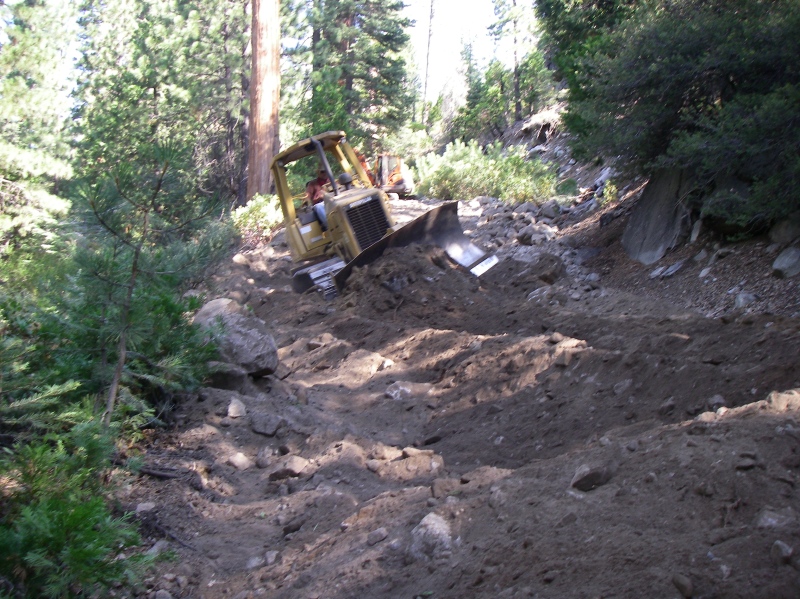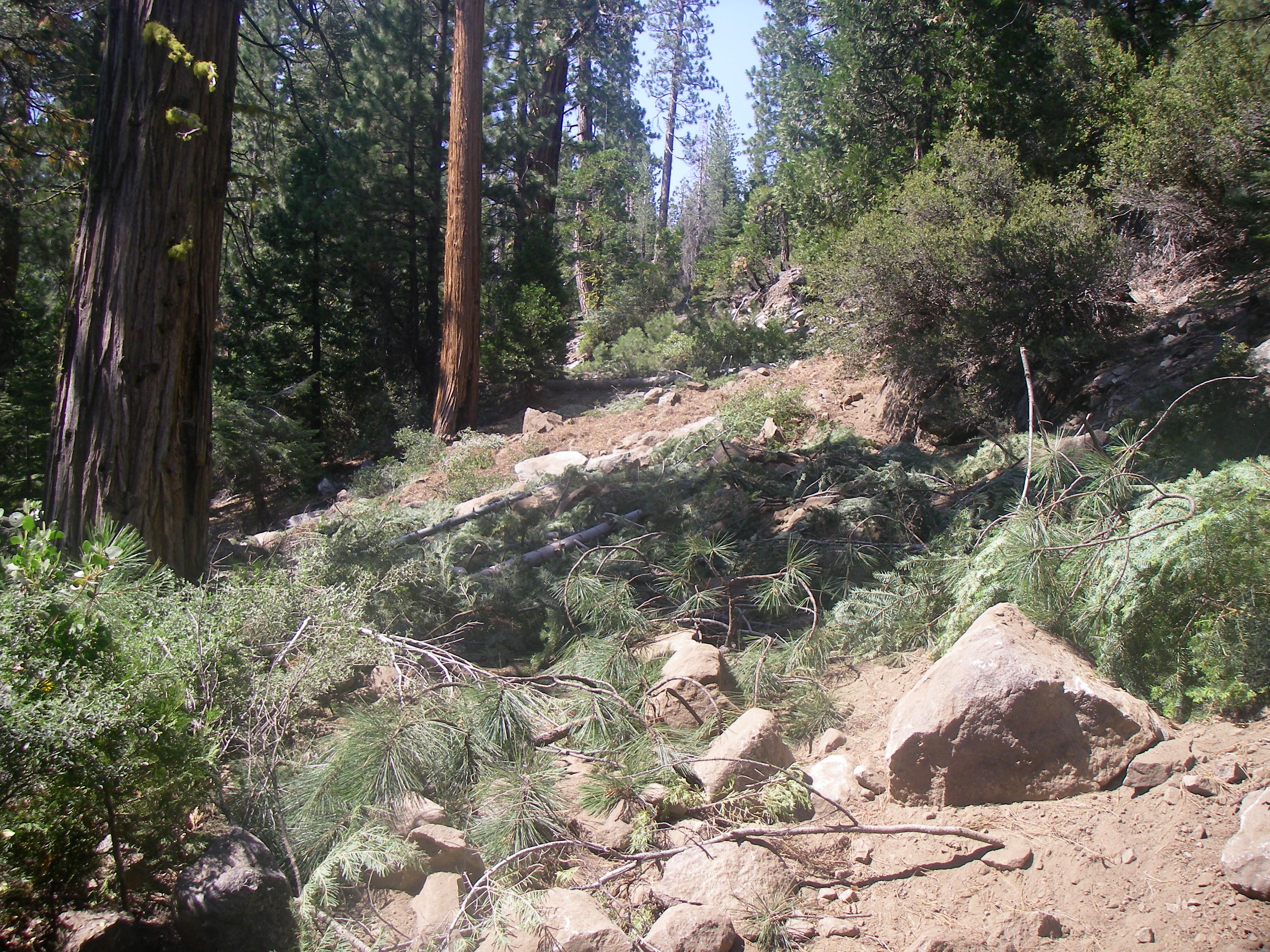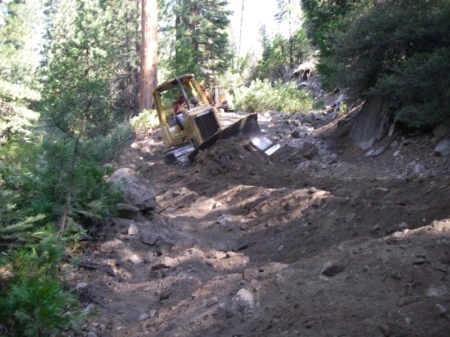Skier Lorenzo Worster’s Other Job—as an Environmental Restoration Specialist
 It's easy to think the life of a sponsored athlete is one full of jet-set luxury and hedonistic indulgence. But we try to do things a little differently here, and our athletes are no exception. There's a reason we call them "ambassadors," after all. Yes, we look to them for insights on how to improve our designs, but we're also interested in working with committed environmental advocates with a passion that's inspired – not limited – by their chosen sport.
It's easy to think the life of a sponsored athlete is one full of jet-set luxury and hedonistic indulgence. But we try to do things a little differently here, and our athletes are no exception. There's a reason we call them "ambassadors," after all. Yes, we look to them for insights on how to improve our designs, but we're also interested in working with committed environmental advocates with a passion that's inspired – not limited – by their chosen sport.
There's no doubt Patagonia Skiing Ambassador Lorenzo Worster was feeling fired up about his job while on location for the latest video (Signatures) from Sweetgrass Productions. Skiing's not his only job, though. In today's post, Lorenzo makes it clear that he holds just as much enthusiasm for his work as an environmental restoration specialist as he does for deep Hokkaido powder.
______________________________
Out in the woods we are pulling off the coolest job I’ve ever worked on. We are restoring a road system and removing an old dilapidated shack, all with a super tight budget and an even tighter time-line. We are 5 miles out on a four-wheel-drive road in the woods near the headwaters of the Yuba River. The area is beautiful – granite domes jut out of lush meadows hazed with wildflowers and giant cedar trees loom over adjacent stands of Lodgepole and Jeffrey pines. To restore the area, we needed to first destroy the road. Ripping up the road and tearing down the dilapidated shack I couldn’t help smiling and thinking, “I can’t believe this is what I get paid to do.”
Pierce Meadows was bought from a private land owner by the Truckee Donner Land Trust and handed over to the Forest Service for management. Not only is the area an important buffer zone to the proposed Grouse Ridge Wilderness Area, but it also helps cleanse runoff of sediment before it enters the South Yuba River, a federally designated Wild and Scenic River. Before the sale of the parcel it was important to the land owner to decommission several . . .
[Constructive destruction – the team at Integrated Environmental Restoration Services
erases a road near Pierce Meadows in the Tahoe National Forest, and
with it, a chance to do further damage to the area through erosion and
illegal OHV use. The above photo was taken mid-way through the
restoration process. Before-and-after photos of the area are after the
jump. All photos: Lorenzo Worster]
. . . roads that had become a hot spot for illegal Off-Highway Vehicle (OHV) use, which had created serious erosion issues. In addition, the Forest Service requested the old shack be torn down as it was otherwise a liability and a safety.
To do this work, we have a bulldozer, a mini excavator, and a week to rip the snot out of some dirt roads and tear down the shack. I’m not going to lie, I get great satisfaction dropping the tines of the ‘dozer into the ground and feeling the raw power of the machine loosening years of compaction. To some this could seem like wanton destruction, but we have found that loosening the soil is one of the vital steps to rehabilitating a highly impacted area. When water is able to absorb into loosened earth instead of running off the compacted surface, not only does erosion decrease but plant roots chase the water deep into the ground creating a strong root system and stabilizing the soil.
 If ripping the road up with tines was fun, then pushing a pile of rich brown soil out of the fill slope and back up to where it came from on the cut slope is a friggin’ blast. By running the road across this steep slope, an over-steepened slope above the road was created, which funneled additional water down the road. In order to take the water’s erosive energy away we needed to spread it out and decrease the slope so that it would sink into the soil instead of running off. Once we were finished re-contouring the area, we dropped some overcrowded pines across what was once the road and used the branches as added mulch and left the trees to slowly decompose, delivering future nutrients. Standing at the bottom of that area where we literally erased the road made my heart swell with pride.
If ripping the road up with tines was fun, then pushing a pile of rich brown soil out of the fill slope and back up to where it came from on the cut slope is a friggin’ blast. By running the road across this steep slope, an over-steepened slope above the road was created, which funneled additional water down the road. In order to take the water’s erosive energy away we needed to spread it out and decrease the slope so that it would sink into the soil instead of running off. Once we were finished re-contouring the area, we dropped some overcrowded pines across what was once the road and used the branches as added mulch and left the trees to slowly decompose, delivering future nutrients. Standing at the bottom of that area where we literally erased the road made my heart swell with pride.
Our secondary goal was to prevent future use by off-road vehicles from interrupting the healing process. As we backed the mini excavator out we pulled logs and boulders back into the road creating a maze of features. It is amazing how doing just that makes the area look like it is coming back to life.
After a week of long, buggy and dusty days, we pulled our gear back out of the woods with wide grins. As we took one last dip in the river to wash the grime off before the trip home I thought to my self, “I still can’t believe that this is my job.”
